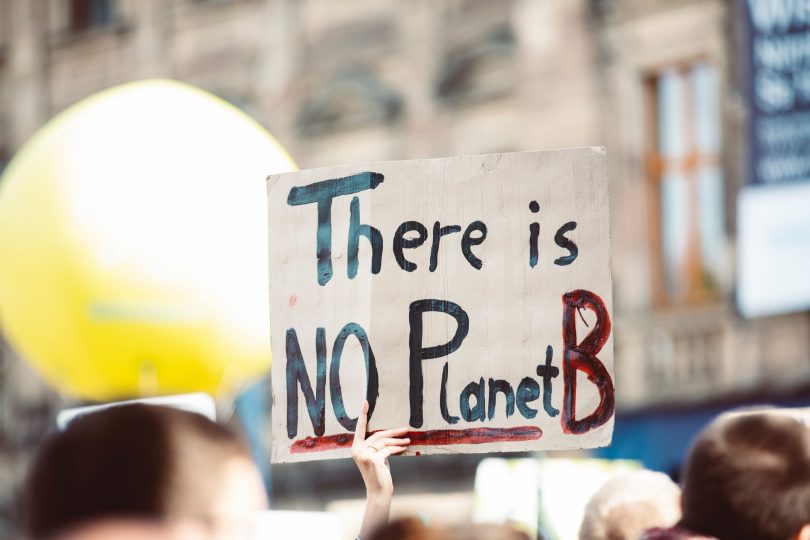The environment is said to be what surrounds us. All the living and non-living elements present around us comprise our environment. Today, environmental issues are no longer a matter of the distant future.
They have become an imminent issue that is already impacting our daily lives. From water scarcity to air pollution, the modern world is facing unprecedented challenges in safeguarding natural resources and keeping the planet healthy.
Environmental Challenges
Unfortunately, not everyone today has caught on to this alarming issue yet. While many people understand that there’s a significant problem facing the entire world, few know what to do about it. Climate or environmental change is one of the most threatening issues faced by humanity in the last few decades.
Health experts worldwide are already reacting to the health consequences of this growing calamity. Not only human life, but it poses a significant threat to all terrestrial as well as aquatic beings.
To understand the threats of it, we must first understand that we humans are the major contributors to environmental change. Our CO2 emission has been the highest in the last two centuries and continues to increase.
The good news is that most individuals aware of these horrifying issues are working towards protecting their health and the environment. The rapidly growing impact of climate change on human health is menacing, necessitating global rectification strategies.
It’s also encouraging youngsters to step forward and take action. While some are campaigning against perilous state policies, others are pursuing careers in public health to curb the adverse effects. Public health professionals advocate for policies to control climate change, devise strategies to limit its impact, and inform the masses of its severity.
Now, let’s go over ways to protect your health from environmental issues:
1. Reduce your consumption of animal products
Animal agriculture is a significant contributor to environmental issues and a danger to human health. Industrialized animal agriculture is a significant source of greenhouse gas emissions and other pollutants, which in turn cause global warming and climate change.
Raising animals for consumption also significantly impacts water resources through the volume of water used for drinking, processing feed crops, and disposing of manure. When these factors are combined with health risks associated with eating animal products, the conclusion is that eating less meat and dairy can limit health complications.
2. Travel by foot or by bike
A viable way to limit your carbon footprint is to use less fuel-burning transportation like cars and airplanes. By shifting towards eco-friendlier transport options such as walking and cycling, you can significantly reduce your carbon emissions and make a big difference in protecting the environment.
It’s also one of the best ways to protect your health, as walking and cycling reduce the risks of coronary disease and other chronic illnesses.
3. Check the air pollution index
If you want to know the air quality in your area, check the air pollution index. It’s a system that measures and forecasts the level of air pollution in your area. Air pollution is one of the most common environmental issues worrying many developed countries. The main sources of air pollution include power plants, transportation, and industries.
Rising levels of poor quality air can lead to various health issues like asthma and lung cancer. So, check the air pollution index in your immediate environment and try plantation to limit its impact.
4. Monitor what goes into your body
Unfortunately, most modern food is grown using pesticides and synthetic fertilizers. These chemicals have been linked to a wide range of threats to human health, including increased risk of cancer, neurological issues, and other chronic diseases. By choosing organic foods, you can limit your intake of these harmful compounds and protect your health.
Organic foods are grown without utilizing synthetic pesticides or fertilizers. They are also not genetically modified, meaning they are not altered using gene transfer techniques. You can significantly reduce your intake of harmful pesticides and other chemicals by choosing organic foods. Protecting yourself against it can greatly reduce your risk of developing chronic diseases like cancer.
5. Restore natural environments
That’s right – protecting the environment can boost your well-being. By planting pollinator gardens and restoring natural ecosystems like wetlands and forests, you can help protect the world’s pollinators and reduce the worldwide decline in biodiversity.
Pollinators are essential for growing the food we eat, and the decline in their numbers has been linked to increased rates of food allergies and reduced nutritional value of crops.
Restoring natural ecosystems can also save you from air pollution, including carbon monoxide and other harmful gases produced by cars and industrial activities. In addition to protecting you from alarming air pollution levels, restoring natural ecosystems can also help improve water quality and reduce flooding.
6. Limit the production of toxic waste
Toxic waste is a term for any substance that can potentially harm humans or wildlife. It may be found in the air, water, soil, and the food we eat. Toxic waste can adversely impact the environment by causing harm to plants and animals. Toxic waste can also endanger human health after being transferred through vegetables or meat, causing cancer or other illnesses. You can avoid generating such toxic waste by choosing less toxic alternatives to these substances.
If you see toxic materials at home or work, tell someone about it as soon as possible so they can take action before the issue worsens.
7. Environment-friendly clothing
Not a commonly talked about point, but your choice of clothing can influence the environment and, ultimately, your health. According to the World Wildlife Fund, perfluorinated compounds (PFCs) that keep some clothing wrinkle-free can be hazardous to the environment and have also been connected to health risks such as cancer.
Choosing natural fabrics made up of Chitosan is a safe and environment-friendly alternate. Besides being safe, it has antimicrobial, anti-infection, and better adsorption properties.
8. Go organic
Not only is organic food healthier for you, but it’s better for the environment and animal welfare too. By choosing organic products and foods, you can reduce your exposure to harmful synthetic pesticides and fertilizers, leading to a lower risk of developing certain cancers.
Organic foods have also been shown to have higher nutritional value. So, by choosing organic, you get more goodness from the food you eat. By growing your vegetables and fruits at home, you’ll have the assurance that no pesticides were used on your crops.
Conclusion
If not addressed properly, environmental problems can cause irreversible damage to human health. But we can take appropriate actions and measures to protect ourselves. The best way to reduce your risk is to make small changes in your daily routine. Limit your meat consumption, go organic, and check your region’s air pollution levels. Likewise, monitor what goes into your body and opt for environment-friendly clothes.








